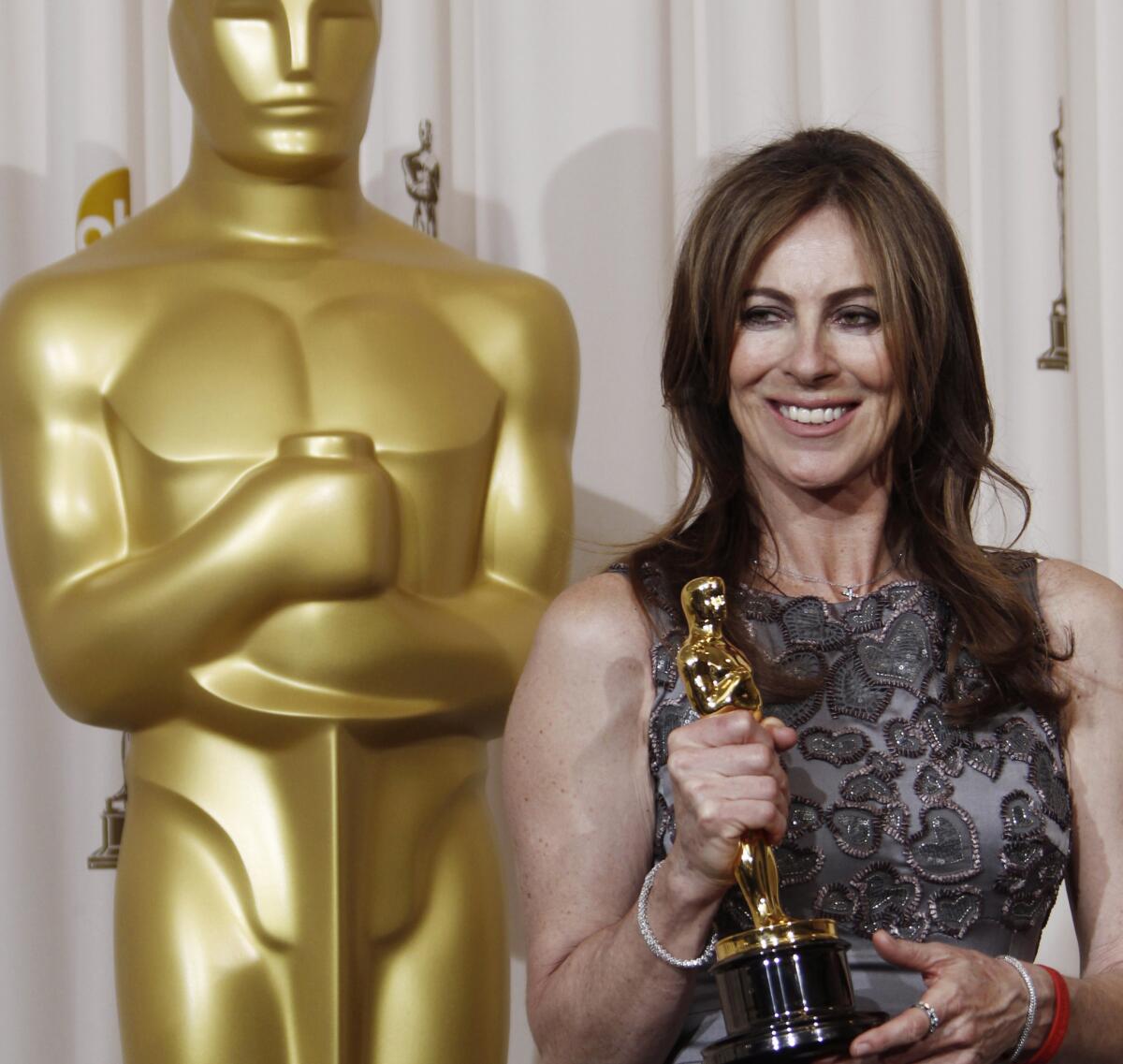Opinion: ACLU discrimination complaint is all sorts of awkward for Hollywood

- Share via
Talk about awkward: The American Civil Liberties Union wants the Obama administration to investigate Hollywood’s film and television studios, whose executives and stars have been generous supporters of the Obama administration.
Good thing he’s not running for office again.
At issue is whether the studios are systematically discriminating against female directors. This, too, is awkward. Here we have Hollywood supposedly treating women filmmakers as second-class citizens even as it’s inculcating the country with such Blue State values as equality for all and justice for the oppressed.
I’m kidding, of course. The notion that Hollywood is some kind of liberal bastion may play in certain political circles, but in reality the film and TV studios are businesses with well-documented diversity problems. Despite the presence of some high-profile female and minority executives, producers, directors and stars, the industry remains disproportionately white and male.
But then, Hollywood is hardly alone in that respect (Hello, Silicon Valley!). The question is whether the situation for female directors is so bad that the government needs to intervene.
On Tuesday the ACLU asked two federal agencies -- the Equal Employment Opportunity Commission and the Office of Federal Contract Compliance Programs -- and the California Department of Fair Employment and Housing to investigate the studios’ hiring practices. In each case, the ACLU says, there are at least two grounds to begin a probe.
First, the organization contends, there are female directors who have experienced discrimination firsthand. According to the letters it sent the agencies, female directors have been told directly or through their agents that specific studios or showrunners simply won’t hire women. And in other cases, they’ve been shunted into less profitable, stereotypically female assignments.
Wrote the ACLU, “Nearly every woman with whom we spoke had either experienced directly or was aware of the widespread perception that women are better suited to and typically only considered for projects that are ‘women-oriented,’ such as romantic comedies, women-centered shows, or, commercials for ‘girl’ products.”
Second, and more problematic for the studios, the ACLU offered statistics that appeared to show that women were grossly underrepresented in directing jobs. Here are a few of them: Only 1.9% of directors of the top-grossing 100 films of 2013 and of 2014 were women. During the same period, 70 television shows, 31 networks and 47 production companies had no women directors on any episodes.
Federal and state laws bar practices that result in discrimination, without having to prove that the employer was trying to discriminate. This is referred to as a disparate impact analysis. Two of the practices singled out by the ACLU were the widespread use of “short lists” of predominantly male directors who’d be considered for projects, and the training programs studios offer to female directors that never seem to lead to actual directing jobs.
The Directors Guild of America, which helped establish some of those training programs, agreed with the ACLU -- up to a point. In a statement Tuesday quoted by Variety, the guild called the treatment of female and minority directors “deplorable,” while also defending its efforts to combat discrimination.
(The New York Times noted a potential escape hatch for the studios: The law applies to the treatment of employees, and on many projects directors are treated as contractors.)
So what happens now? The ACLU hasn’t filed a suit, and it hasn’t threatened one. Instead, it wants one or more of these government agencies to take up the case, which could lead to negotiations with the studios over ways to give female directors a fair shake.
Disparate impact cases, incidentally, have been championed by liberals as a powerful tool for rooting out discrimination that’s become ingrained in a business or industry. Conservatives, on the other hand, deride it as a way to transform equal-opportunity protections into guaranteed outcomes.
Awkward!
Follow Healey’s intermittent Twitter feed: @jcahealey
More to Read
A cure for the common opinion
Get thought-provoking perspectives with our weekly newsletter.
You may occasionally receive promotional content from the Los Angeles Times.










